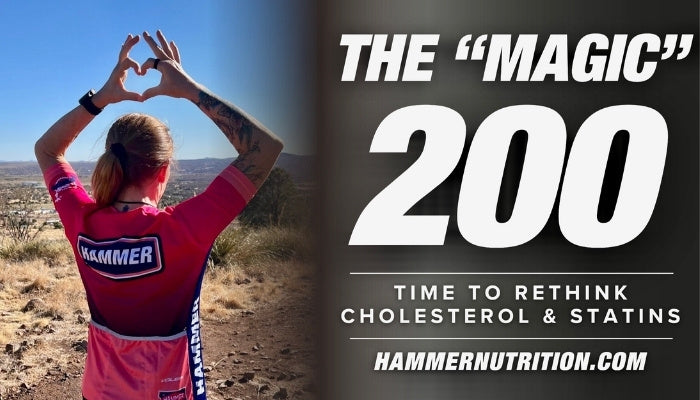BY STEVE BORN
On more than a few occasions, I am asked, "What is the most underrated supplement in the Hammer Nutrition line?" My answer has always been "AO BOOSTER." This is the first in a series about the components in this awesome product, beginning with the ingredient astaxanthin.
An excellent amount of 5 mg is in each AO Booster softgel, a potent dose for all the benefits that astaxanthin (as-tuh-zan-thin) supplies. Classified as a type of carotenoid, astaxanthin is a form of microalgae that gives the red color to salmon, lobster, and crab, among others, and the pink color to the feathers of flamingos.
Known primarily as a powerful antioxidant, it is believed to be 550 times more potent than vitamin E and 6,000 times stronger than vitamin C. It is also a superb anti-inflammatory. There have been numerous studies demonstrating astaxanthin's benefits in many areas of human health, including eyes, skin, heart, brain, liver, and more. The results from emerging studies are extremely encouraging in showing the beneficial effects of astaxanthin as a potentially powerful anti-cancer agent:
Colorectal cancer - The second most common cancer in women and the third most common in men. Three separate animal (mice, rats) studies showed that astaxanthin had the following effects:
- Significantly decreased the expressions of proteins (i.e. the way in which proteins are synthesized, modified and regulated in living organisms) that are involved in inflammation and colorectal cancer.
- Decreased the growth of cancer cells while also increasing cancer cell death.
- Inhibited the cell growth of two colorectal cancer cell lines (colonies of cells derived from a tumor that can be grown in culture indefinitely), eventually causing cell death.
Liver cancer - The fifth most common cancer and the third most fatal cancer. In vitro, astaxanthin was studied for its effects in two cell lines of the most common type of liver cancer in adults. Used in a number of different concentrations, and compared to a control drug (DMSO), astaxanthin triggered high levels of cell death in both cell lines in three of the concentrations, which led the researchers to believe that astaxanthin could prove to be very useful in combatting the disease.
Lung Cancer - According to the American Cancer Society, Lung cancer (both small cell and non-small cell) is the second most common cancer in both men and women (not counting skin cancer). Lung cancer is by far the leading cause of cancer death among both men and women; about 1 out of 4 cancer deaths are from lung cancer. Each year, more people die of lung cancer than of colon, breast, and prostate cancers combined. Two studies have been promising in that they've shown that astaxanthin can help boost the effectiveness of standard lung cancer treatments.
Prostate Cancer - The third leading cause of cancer death in American men, behind lung cancer and colorectal cancer. According to the American Cancer Society, About 1 man in 7 will be diagnosed with prostate cancer during his lifetime. About 1 man in 39 will die of prostate cancer.
In a recent study, mice inoculated with human prostate cancer cells were given two different doses of astaxanthin - 25 mg/kg or 100 mg/kg (about 11 mg/lb. or about 45.5 mg/lb.) - or a placebo. In roughly one month's time, tumor volume (the percentage of the prostate taken up by the tumor) was 40% smaller, and tumor weight was reduced by nearly that same amount in the group that received the higher astaxanthin dose. An increase in the expression (communication of protection) of tumor suppressor gene - a gene that that protects a cell from taking another step on the path to cancer - was also noted.










